Syrian photojournalist injured by police during Paris protests
A Syrian photojournalist has suffered an injury above his eye after French police intervened in a protest over wages and working conditions in the capital, Paris, amid soaring inflation in the country.
Zakaria Abdelkafi was injured as a result of a police charge during a demonstration by thousands of people calling for higher wages, Reporters without Borders (RSF) said on Tuesday.
The Paris-based media watchdog said that the 38-year-old cameraman, who was bleeding heavily, was reportedly quickly treated by “street medics” and declared stable, with his eye not affected.
RSF added that they were “actively investigating this incident,” and that the journalist had previously covered the civil war in Syria.
Thousands of protesters marched in Paris on Tuesday as part of a day of cross-industry “mobilization and strikes” for higher wages, and to denounce the requisitioning of strike at fuel refineries.
Dozens of black-clad protesters clashed with police and broke shop windows on the margins of the demonstrations.
According to the French Interior Ministry, 11 people were arrested in Paris, and 107,000 people nationwide followed the protest call from left-wing parties and some unions, including 13,000 in the capital.
Trade unions in France also began a nationwide transport strike on Tuesday amid a deadlock with the government over wages and working conditions that have in recent weeks led to severe fuel shortages across the country.
However, the strikes did not have as great of an impact as expected. Long-distance TGV trains were only marginally affected.
The massive strike came after workers at several refineries and oil depots operated by TotalEnergies, French energy, and petroleum company voted to extend the industrial action that has paralyzed the European country for more than three weeks.
Thousands of workers at refineries and depots voted against the government's move to end the strike and to force strikers to re-open fuel depots.
French President Emmanuel Macron, after a meeting with ministers on Monday, said he wanted the crisis "to be resolved as quickly as possible."
Earlier, Finance Minister Bruno Le Maire said it was necessary to use requisitioning powers to reopen the refineries and depots.
The strike action has severely disrupted fuel distribution across the country, mostly affecting northern and central France and the Paris region.
It has crippled fuel supplies by over 30 percent while more than 60 percent of the country's refining capacity remains offline.
Strikes have also affected work at 10 French nuclear power plants, with maintenance delays at 13 reactors considerably reducing French power production.
Unions are demanding a 10-percent increase in salaries, citing the high inflation rate and the living crisis in the country.
As tensions rise in the country, unions are pushing for the generalization of the strikes, which will further disrupt public transport services in the country.
US yet unwilling to engage in serious talks, must accept Iran’s right to peaceful nuclear energy: FM
VIDEO | Olympic flame travels through the streets of Rome and Vatican
Syria’s Alawite Council calls for general strike over HTS religious violence
Iranian boys’ team crowned champions at World U-21 Taekwondo
Pentagon chief under pressure to resign over Caribbean 'war crimes'
Iran’s economy expands slightly in H1 calendar year
Palestinian woman and son killed by Israeli fire in Gaza, bringing day’s death toll to eight
VIDEO | Press TV's news headlines


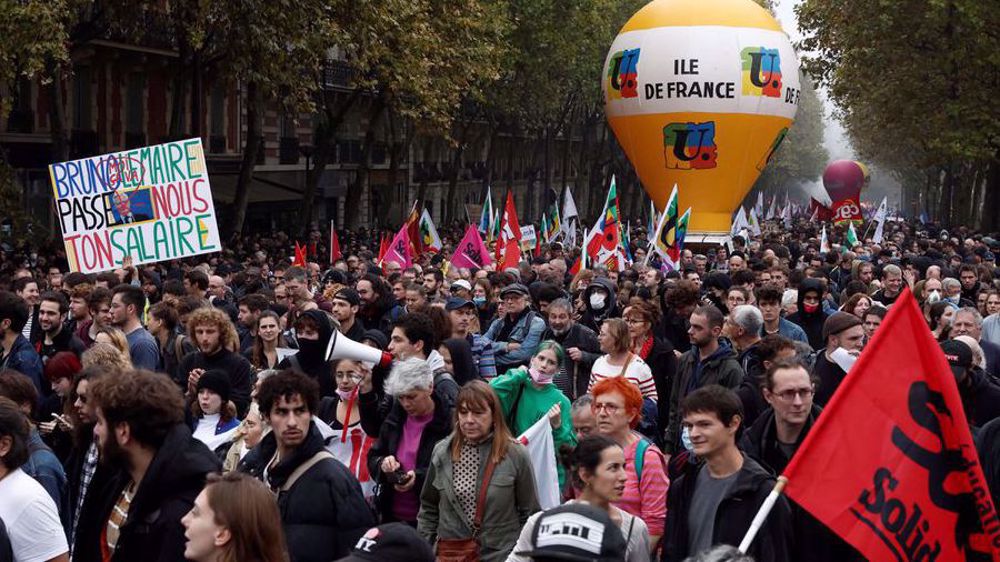
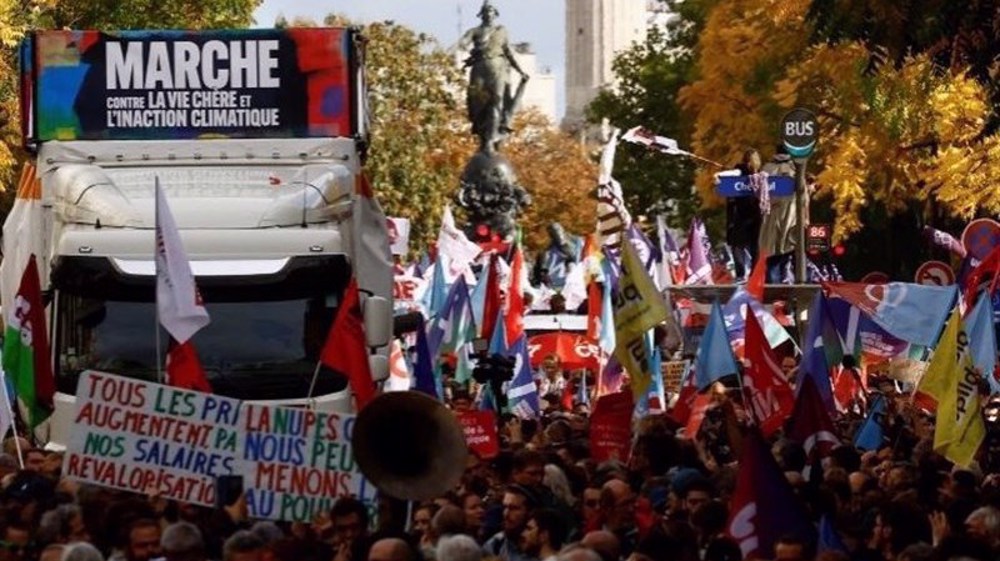
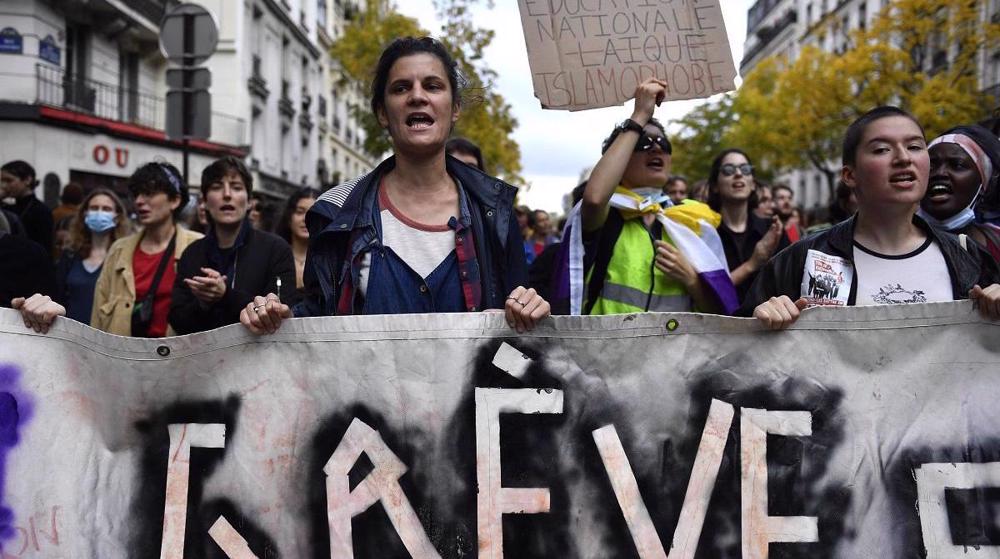






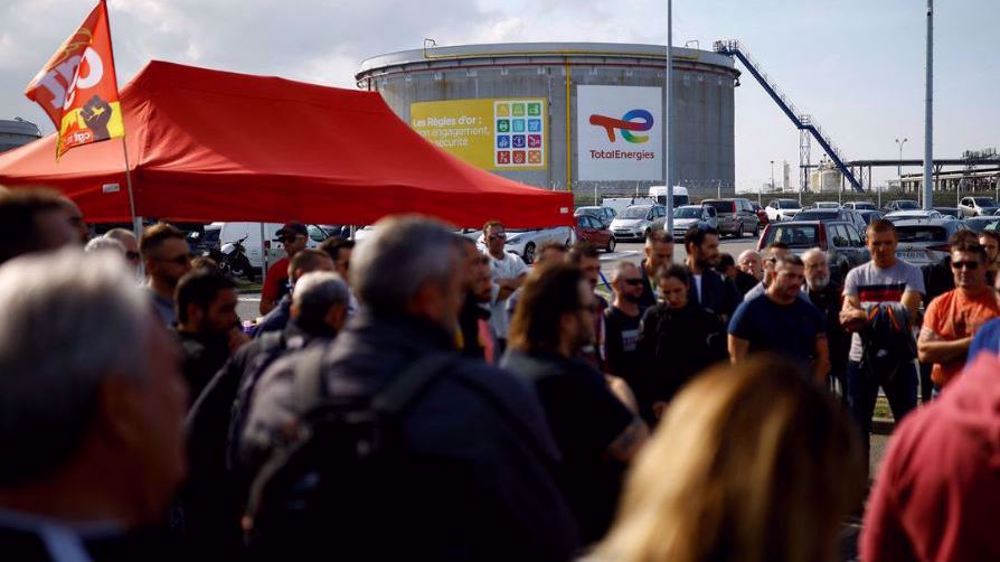
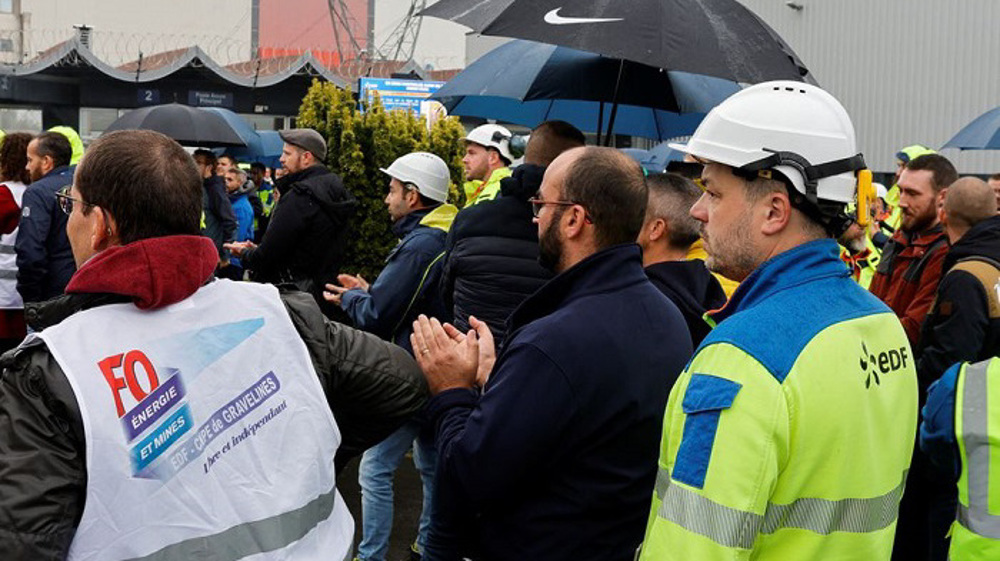
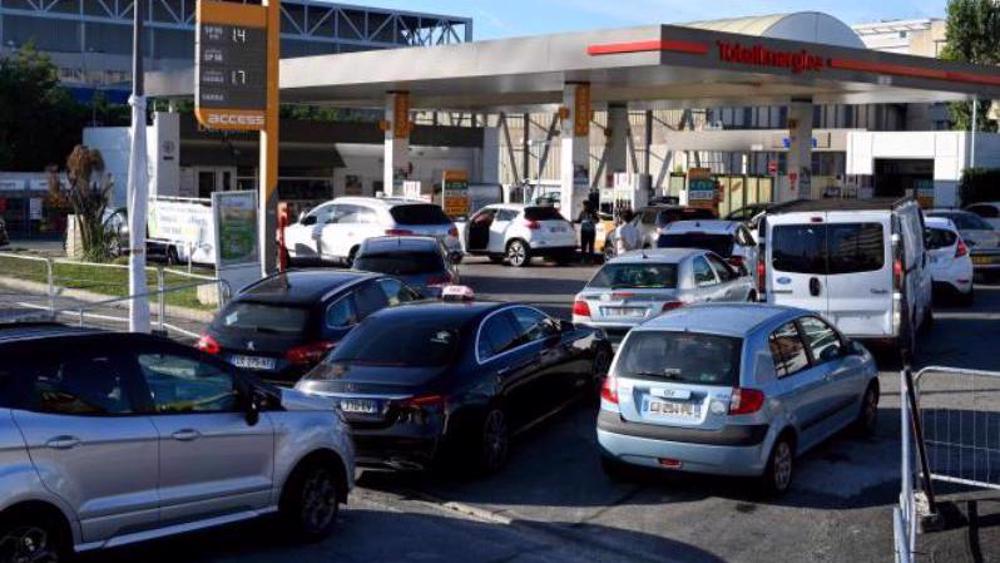
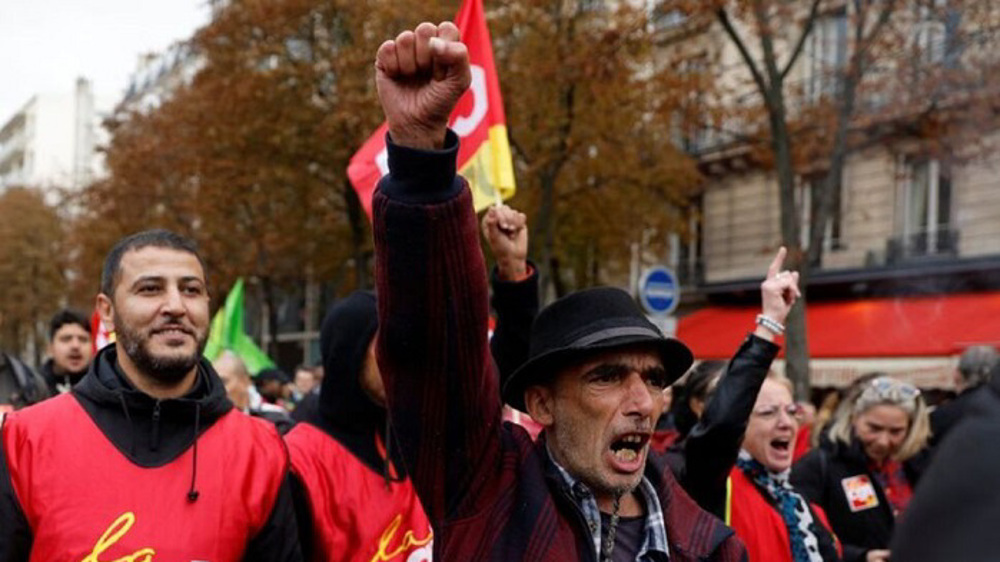

 This makes it easy to access the Press TV website
This makes it easy to access the Press TV website